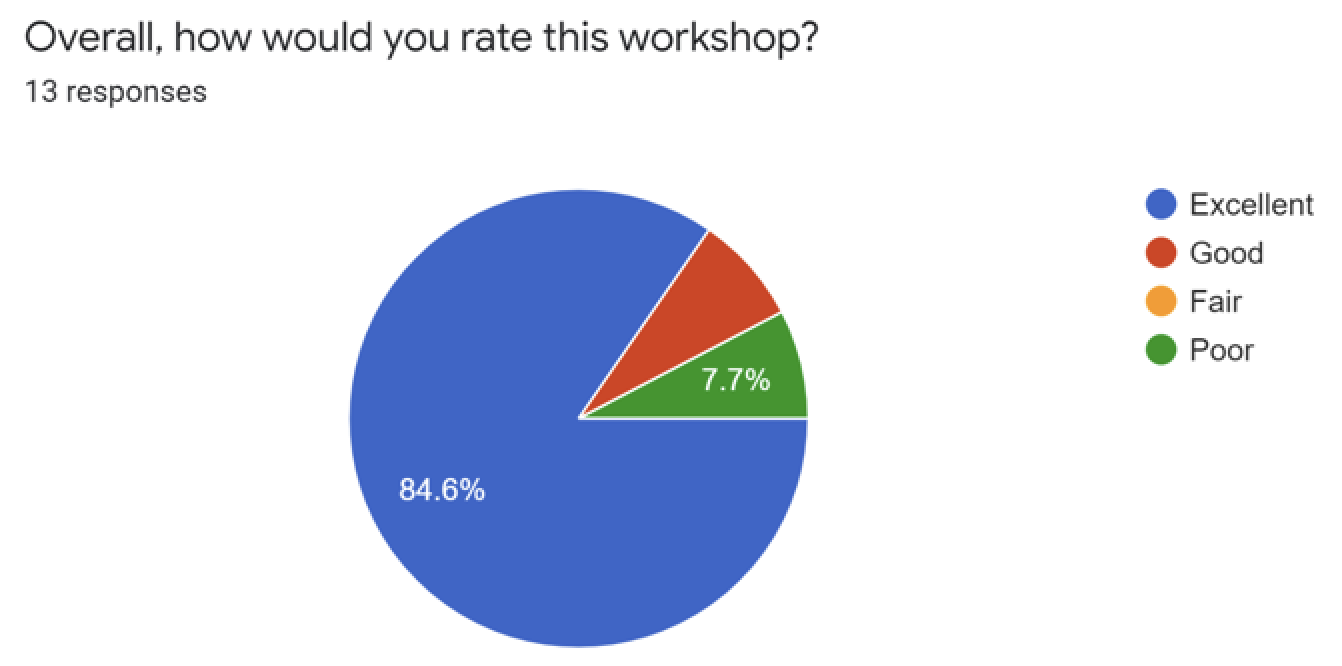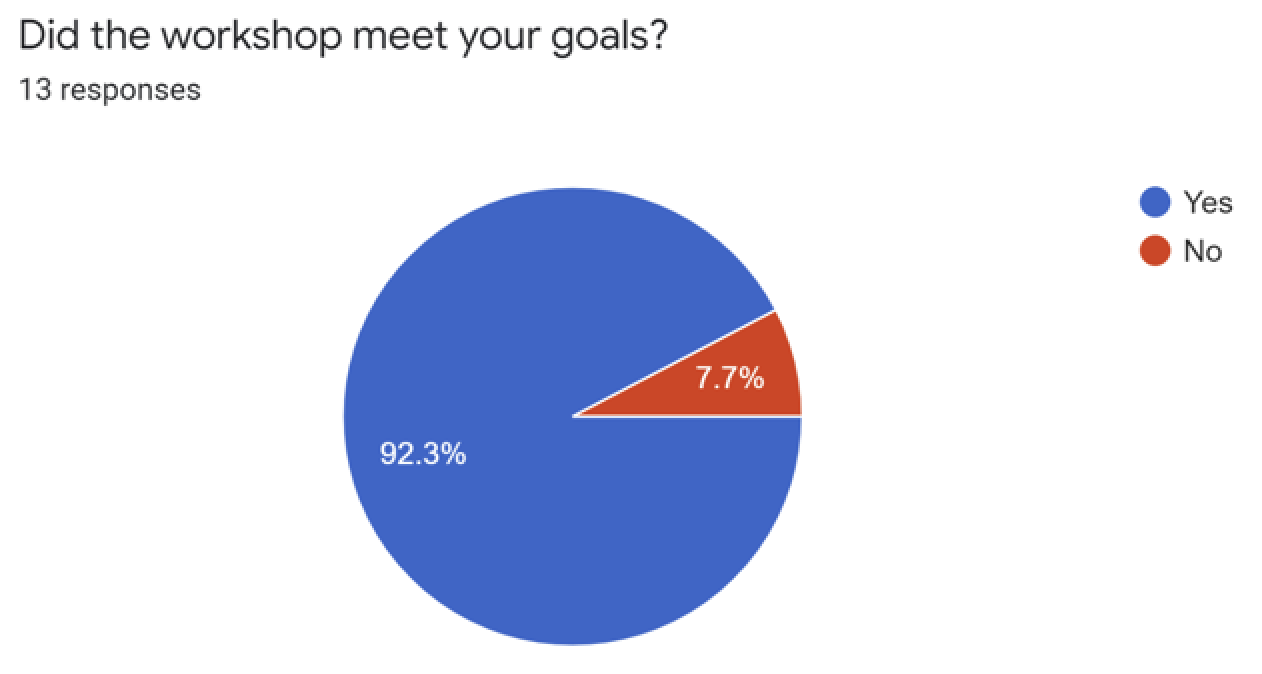Post-Workshop
Testimonials 2022 Workshop
Testimonials 2022 Workshop
The following testimonials captured participants’ opinions regarding different aspects of the workshop. This includes feelings about content, format, and overall relevance to their work. Survey responses indicated an overall high satisfaction with the workshop. Participants described the workshop contents as ‘relevant’, ‘interest confirming’ and ‘a wonderful opportunity to brainstorm’.
Most-Liked:
The survey results did not indicate that participants liked or preferred certain workshop components over others or highlight any particular areas as more liked than others. However, participants indicated that discussing the challenges of working with Indigenous data/implementing Indigenous data sovereignty (IDSov) protocols was most relevant, most meaningful, resonated with them, and was deeply impactful.
Least-Liked:
When asked which aspect of the workshop they liked the most, participants responded that they appreciated the discussion portion of the workshop because it allowed them to explore and unpack some of the challenges that they encountered in their own research:
‘Speakers sharing practical examples of this work being implemented and describing successes, opportunities, and challenges.’
‘I really liked the opportunities for dialogue and also brainstorm – getting us to think about opportunities and possibilities for advancing IDSov through our various roles. I also liked that we talked about finding ways to stay connected near the end when we addressed “what’s next”.’
The sharing of personal experiences and anecdotes during panel presentations gave participants insights into other areas of data stewardship and conservation that are integral to the advancement of IDSov. These included:
- the need for such as funding to support the hiring/onboarding of archivists;
- improving how the honoraria are paid to community research collaborators/participants process; and
- the need to explore different ways of examining and accounting for accessibility when working with Indigenous communities.
Participant responses to the panel presentations were very positive. They described excitement and satisfaction with the panels, describing the panelists as ‘really great’. When asked about what they felt was most useful from the workshop, one participant responded with the following statement.
‘Speakers sharing practical examples of this work being implemented and describing successes, opportunities, and challenges.’
Participants also reported gaining an enhanced awareness of Indigenous cultural centers as an added asset was very useful knowledge to have. While the workshop was successful and participants described the workshop content as well received, some participants felt that they would have benefited from certain areas of IDSov being discussed.
One area that some participants wished was covered in greater detail includes linking IDSov to the K–12 curriculum to facilitate educating students to begin truth and reconciliation at the primary level. Some participants noted also expressed that they would benefit from conversations on how to advance ‘Indigenous Data Sovereignty in urban Indigenous communities prompting the need for information on practical tips and case studies.’ Moreover, more information was sought on the topic of ‘how can non-Indigenous institutions support the advancement of IDSov in urban Indigenous communities?’
Participants engaged in robust conversation about the various forms of data stored in the Aanischaaukamikw Cree Cultural Institute and different methods of knowledge sharing in Indigenous communities. This sparked participant responses in the post-workshop survey. The post-workshop survey revealed another area that requires further attention: to suggest a secondary conversation analyzing, ‘Indigenous perspectives on what data actually means and how knowledge is viewed differently in an Indigenous context’.
The post-workshop survey revealed that participant satisfaction was high and that those who attended found that the content was relevant and applicable to their respective fields of study. They also felt very engaged during the workshop. The responses indicate that the workshop was successful in the engagement of its participants and its content was well-received. However, this is based on the relatively small percentage of participants who completed and submitted the post-workshop survey.
The following graphs represent the findings from the post-workshop survey that rated overall participant experience.



